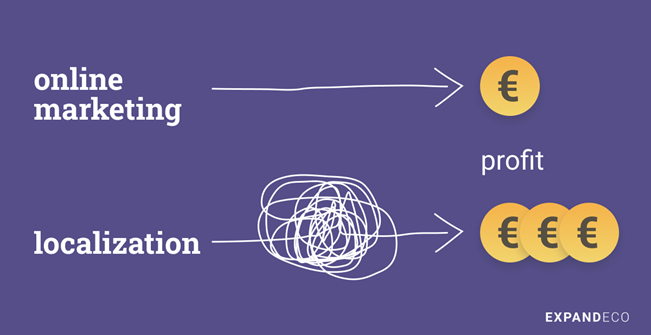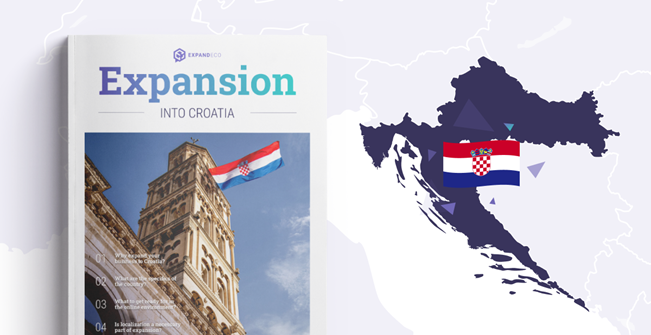How to know (and choose) a good translator?
“I recommend exporting the texts to be translated to a source file (Excel or CSV) and contacting more translation agencies. From their communication you will better understand where you stand and which one to choose. Professional offers range from EUR 15-25 per standard page, for technical texts we are talking about the upper limit and more. Medical texts are translated by highly specialised experts, then worked on by an editor and then sent to doctors in the country,” explains Andrea. Price, in her experience, should not be the only factor. For example, she says it's a warning sign when an agency sends a quote without further questions or an effort to get to know you, your brand voice and your specific needs.
You will also be able to tell from the communication whether the translators are pro-client and will be accommodating to you in a long-term cooperation. Andrea Tesáková sees it this way: “In my field, speed (and quality) is important and Expandeco excels in this combination. Clients have an account where they upload the text and write the deadline for translation. We can translate the content plan for the week within a few days, depending on the scope. We can do even low volumes such as a sentence within an hour. We don't charge a fee of EUR 15 per standard page, but the actual 2 or 4 euros that it took us.”
Localisation on your own? The text should perform and a copywriter can do that.
Let's start by mentioning that the ecosystem is key to expansion. As advantageous as it is when you or someone close to you is familiar with the local language and market, web and content localisation should not be areas that such an individual would dive into. At a (good) agency there is usually a 3-in-1 person who knows the language at a native level, is proficient in copywriting and understands your segment. If all this is hidden in your partner, your wife, your friends, then you can really localise on your own with a relatively calm heart. Think about duplication and create both translation memory and DNA/tone of the brand in the new language. Most importantly: “At least invest in a person who will provide a second pair of eyes,” advises Tomas Vrtík.


If the copywriting quality and SEO is lacking, the texts don't perform and you lose money.
In 99% of cases you don't have a 3-i-n1 person around you, and locating on your own seems like a risky business move. Andrea Tesáková explains why: “When leaving aside important factors such as brand representation and the fact that “cheap” texts will eventually become overpriced, your content needs to perform. If the copywriting quality and SEO is lacking, the texts don't perform and you lose money.”
Our TIP: Don't translate everything you have on the website. Why localise agilely?
You have 10,000 products on your online shop, so do you go the route of painstakingly translating them one by one, including descriptions, parameters and other details? Web localisation should go hand in hand with product analysis, or be based on it. Then, according to Tomáš Vrtík, it will not happen that you copy your 10,000 major appliances and when you expand to Ukraine you will find that there is absolutely no interest in some washing machine or microwave brands. Actually, products for which you wouldn't even find a proper supplier at home are popular. “Out of the 10,000 that sell well in the Czech Republic, 5,000 to 8,000 will be neither sought after nor popular in the new country,” says Tomáš. Heuréka Group's data, for example, shows how different the market for acoustic guitars is. In the Czech Republic and Hungary, the top ten consists of a wide range of manufacturers - different position, different brand. In Romania, then, in the top ten, we find guitars from three manufacturers: 6x Fender, 3x Yamaha and 1x Ibanez.
In his experience, product analysis always shows that an online shop will only enter a new market with a certain percentage of products: “Text can also be improved on-site according to feedback and performance. You will gradually replenish the portfolio based on market demand.”
The choice of products is also dictated by logistics, one example being BabyNábytek.cz
Product analysis can show the buying potential of products, but also other factors - logistics, for example. “We have a reduced offer in each country according to the carriers' capabilities. In the case of launching new language versions, we have tried launching with all products (that can be shipped) and also only with ones that sell the best globally. The basic criteria for furniture are weight and volume. Furthermore, also to what extent we are willing to subsidise the transport to the customer. Whether it should be in percentages or tens of percentages,” shares Petr Schwarz. He recommends that all those who are starting to expand into new countries perform an analysis of your competitiveness: “On one hand, in terms of product portfolio (can I compete on price in a given market?), in terms of transport (can I ship the product to a given country and will I have competitive transport, or will I have to subsidise transport?) and also in terms of payment. In general, the East - cash on delivery, the West - card or fast transfers (PayPal, Klarna) apply here.”









